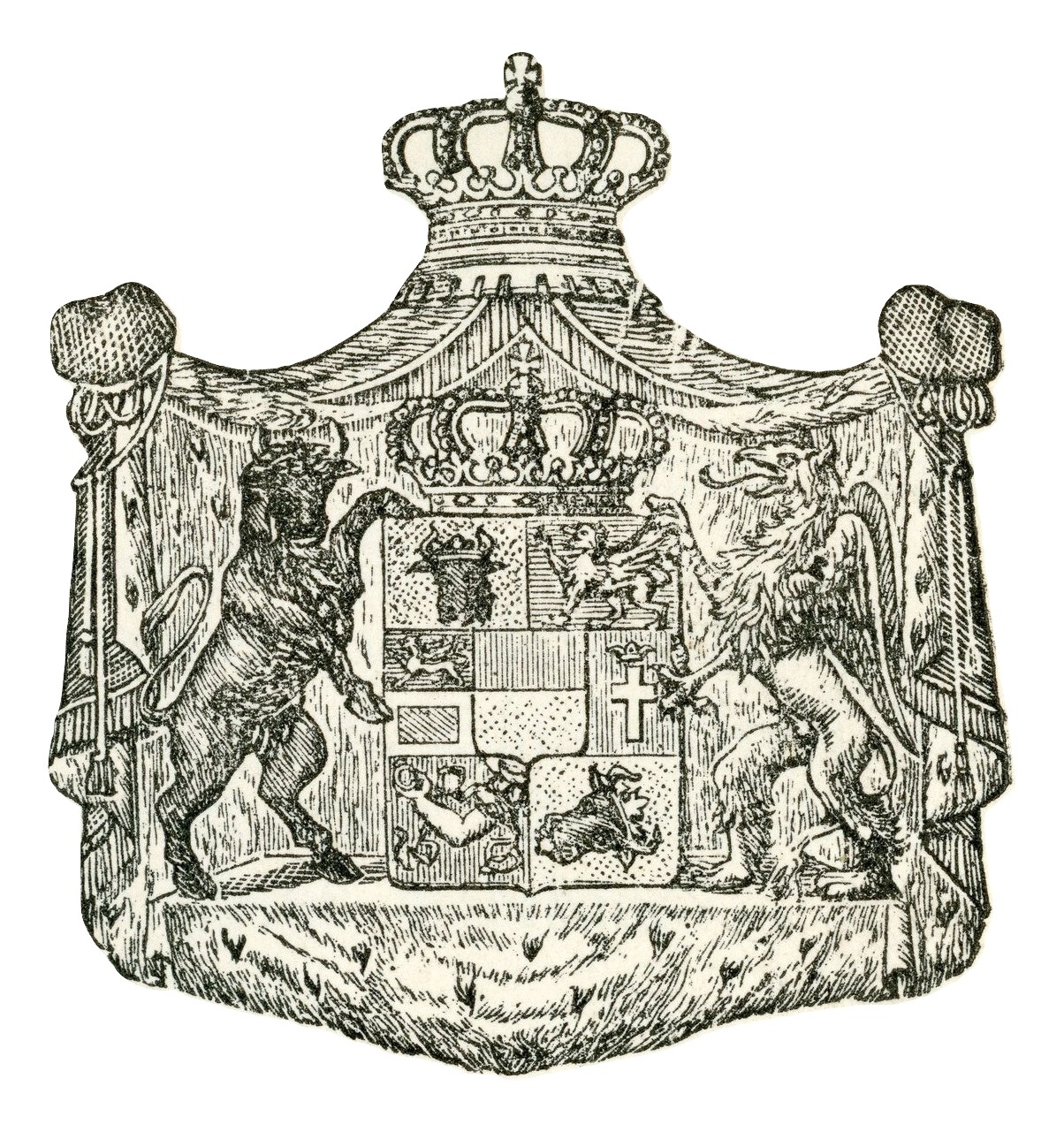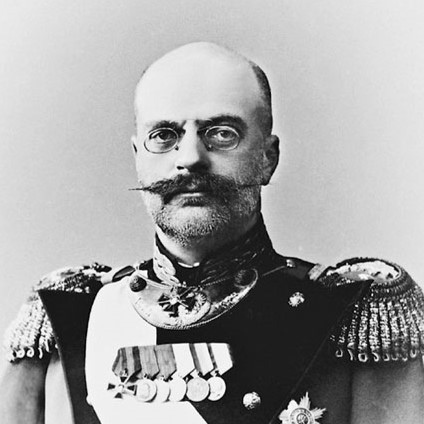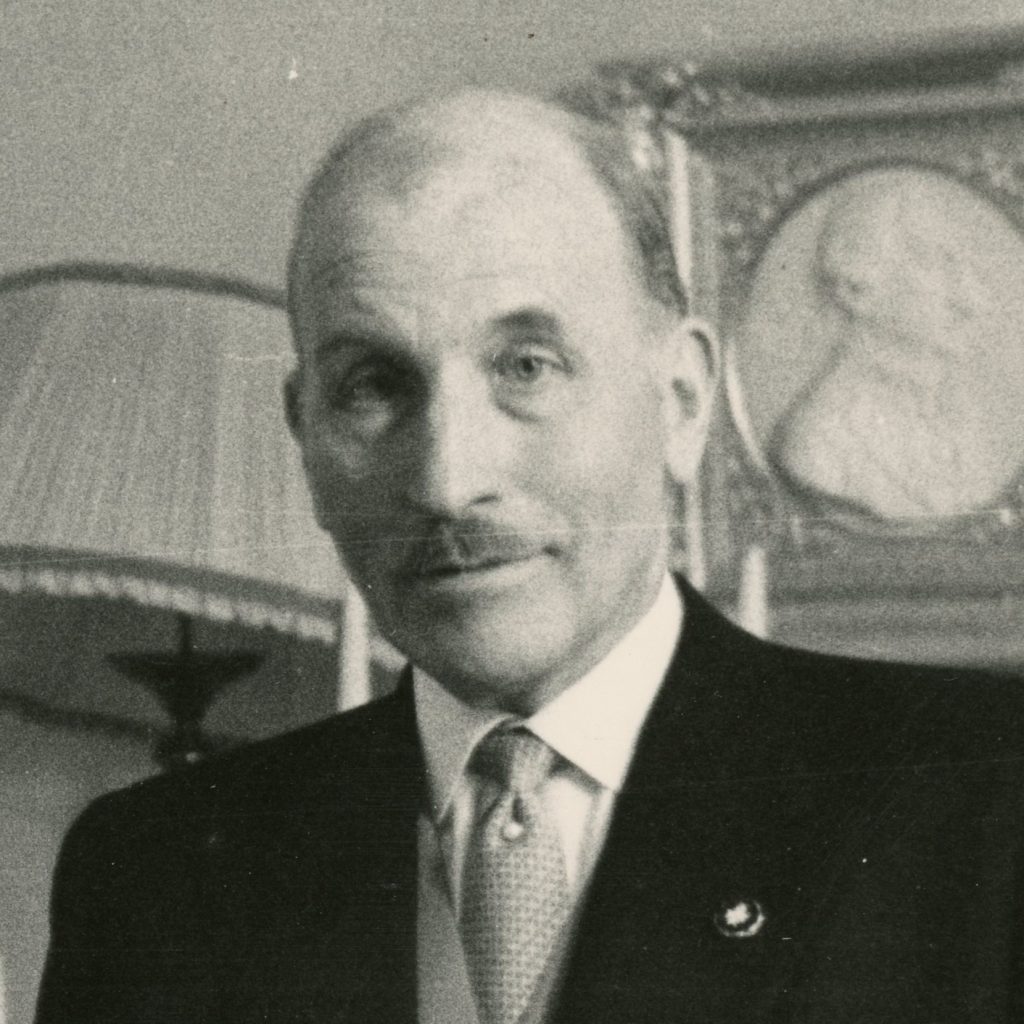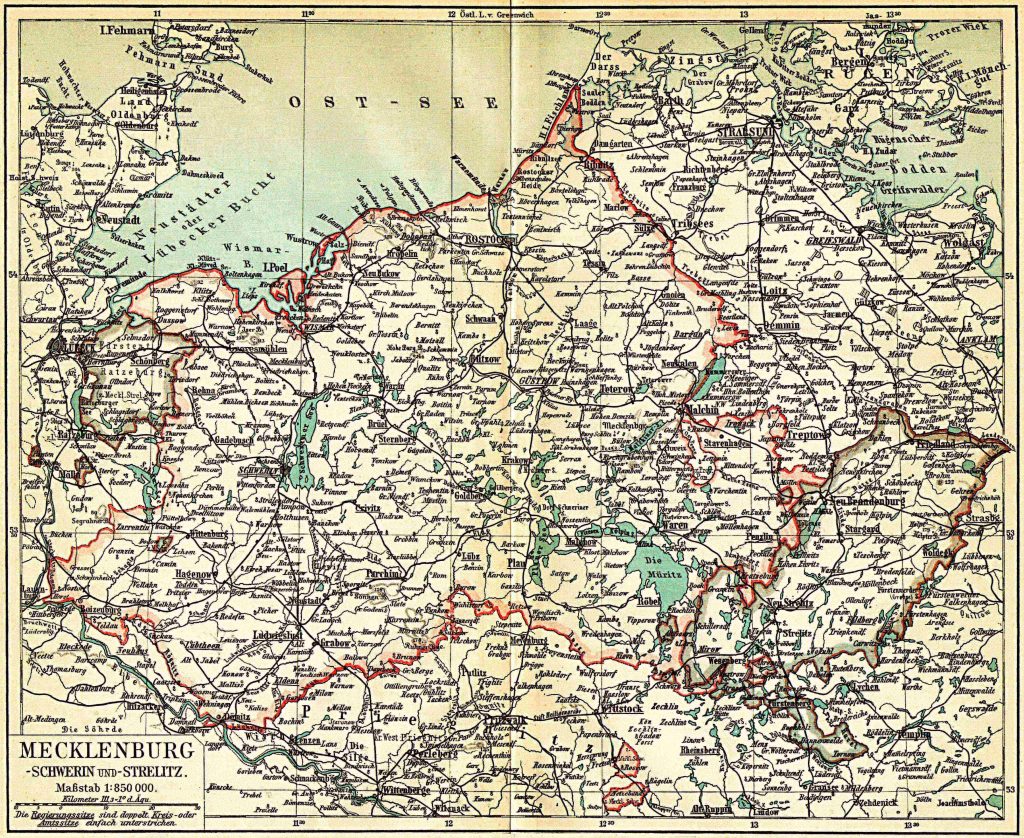Origins
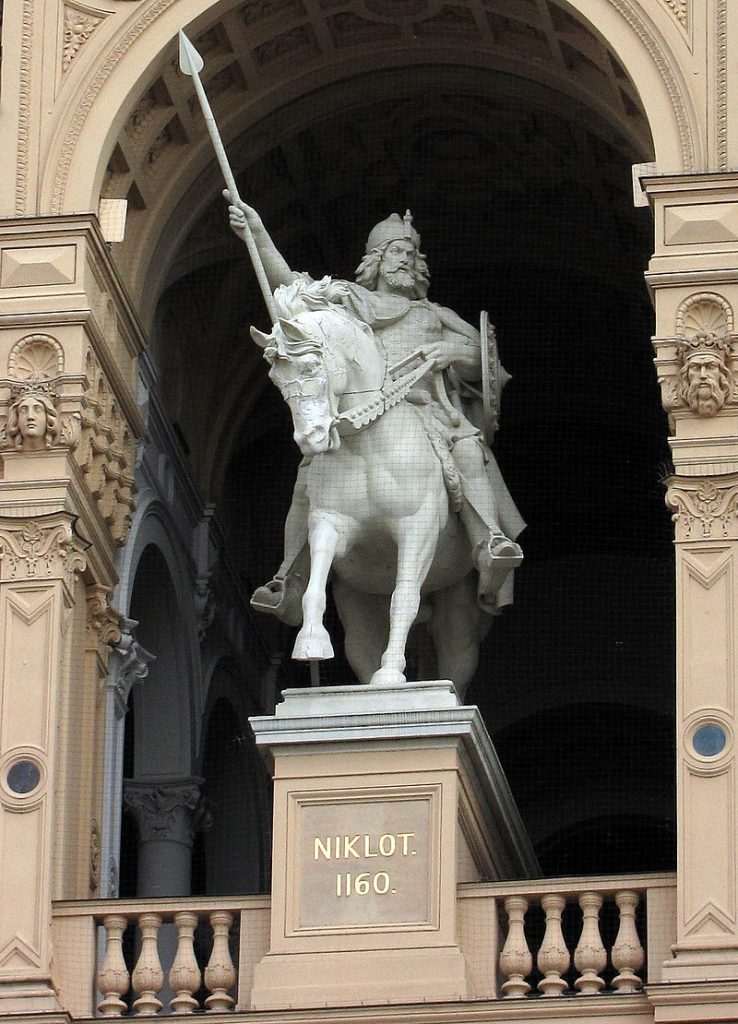
While the origins of Mecklenburg-Strelitz go back to 1701 the House of Mecklenburg itself is one of the oldest royal houses in Europe. It is also unique among the German princely families in that it is of Slavic origins being descended from Niklot the Prince of the Obotrites. With Niklot’s death in 1160 his domains passed to his son Pribislav who was dethroned from his possessions by Henry the Lion, Duke of Saxony and of Bavaria. After a revolution in favour of the exiled Pribslav in 1166, Henry the Lion restored him to his land. This would be the beginning of a largely uninterrupted reign (bar 1628-1631) of over 700 years for the dynasty in Mecklenburg.
Over the centuries a number of partitions took place within the House of Mecklenburg. In 1701 the final partition of the Mecklenburg lands took place, and it is from this partition that the House of Mecklenburg-Strelitz was founded. The founder of Mecklenburg-Strelitz was Duke Adolf Friedrich II who was the posthumous son of the Duke Adolf Friedrich I of Mecklenburg-Schwerin. With the death of his brother Duke Christian Ludwig I of Mecklenburg-Schwerin in 1692 the process that resulted in the creation of Mecklenburg-Strelitz began. Adolf Friedrich claimed a joint right to the succession while his nephew Friedrich Wilhelm claimed the whole succession. Both based their claims on their degree of kinship to Duke Christian Ludwig I. Adolf Friedrich’s first attempt to get a foot hold in government failed when the Holy Roman Emperor recognised the claim Friedrich Wilhelm.
The issue effectively lay dormant until 1695 when the line of Mecklenburg-Güstrow went extinct with the death of Duke Gustav Adolf. As a result Friedrich Wilhelm and Adolf Friedrich, who was the son in law of the late Güstrow duke, both argued of their right of succession again basing their claims on their kinship to Duke Gustav Adolf. After a setback in 1697 when Friedrich Wilhelm was granted possession of the duchy by the Aulic council, eventually the issue of Adolf Friedrich’s claims was put before an Imperial commission after the intervention of the Lower Saxon Circle disputing what they regarded as Imperial interference in their jurisdiction. After a few years the commission reported back. Friedrich Wilhelm received the Duchy of Mecklenburg, the Principalities of Schwerin and Wenden, the County of Schwerin and the Lordship of Rostock. Adolf Friedrich received the Principality of Ratzeburg, the Lordship of Stargard and the Commandaries of Mirow and Nemerow with his capital to be Strelitz. Thus with the signing of the Treaty of Hamburg on 8 March 1701 the history of Mecklenburg-Strelitz and its ruling house officially began.
Reign
The ducal family of Mecklenburg-Strelitz came to great prominence in the 18th and 19th century with the prestigious marriages made by its princesses. The first saw Princess Charlotte’s marriage to the King George III of Great Britain in 1761. The following generation of princesses also made great marriages as Charlotte’s nieces Luise and Friederike were married to King Friedrich Wilhelm III of Prussia in 1793 and King Ernst August of Hanover in 1815 respectively. The marriages tied the ducal house to some of the most powerful states in Europe and enabled some of the princes of the Strelitz house the chance to pursue military careers in their brother in laws armies and receive rapid advancement and high profile posts. The link could even have seen Duke Carl (1785-1837) become King of Greece, as in the late 1820’s his brother in law King Friedrich Wilhelm III of Prussia actively promoted his candidacy and Carl also had the backing of his cousin King George IV of Great Britain.
On 28 June 1815 the reigning Duke Carl (1741-1816) was raised to the dignity of Grand Duke by the Congress of Vienna. The Congress also expanded the territory of Mecklenburg-Strelitz by awarding it sovereignty of the towns of Reifferscheid, Kronenburg and Schleiden, all located in the Eifel region of Western Germany, though they were to be administered by Prussia. Sovereignty of the towns was sold to Prussia in 1819 by Grand Duke Carl’s elder son and successor Grand Duke Georg (1779-1860).
In 1851 a junior line of the family was established by Duke Georg (1824-1876), the younger son Grand Duke Georg, upon his marriage to Grand Duchess Ekaterina Mikhailovna of Russia (1827-1894). The couple, their children and grandchildren all belonged to the so called Russian line of the House of Mecklenburg-Strelitz on account of their permanent residence in the country where they were also regarded as a junior branch of the Russian Imperial Family. The family of Duke Georg and Grand Duchess Ekaterina Mikhailovna became heavily involved in Russian society supporting many charitable and cultural projects. Duke Georg and his two sons Duke Georg Alexander and Duke Carl Michael also all served in the Imperial Russian Army.
The senior line of the family descended from Grand Duke Georg’s elder son Grand Duke Friedrich Wilhelm (1819-1904) who on account of his marriage to his cousin Princess Augusta of Cambridge, a granddaughter of King George III of Great Britain and his Mecklenburg-Strelitz wife Queen Charlotte, further strengthened the family’s ties to the British Royal Family. Grand Duke Friedrich Wilhelm’s grandson, Grand Duke Adolf Friedrich VI ascended the throne in June 1914 just before the outbreak of the First World War on the death of his father Grand Duke Adolf Friedrich V. With the German Empire’s declaration of war against the Russian Empire on 1 August 1914 the two lines of the House of Mecklenburg-Strelitz, the senior line residing in Germany and the junior line in Russia, were cut off from one another. Grand Duke Adolf Friedrich VI did not live to witness the 1918 German revolution take his throne as he had died earlier that year on 23 February in unclear circumstances but believed to be suicide.
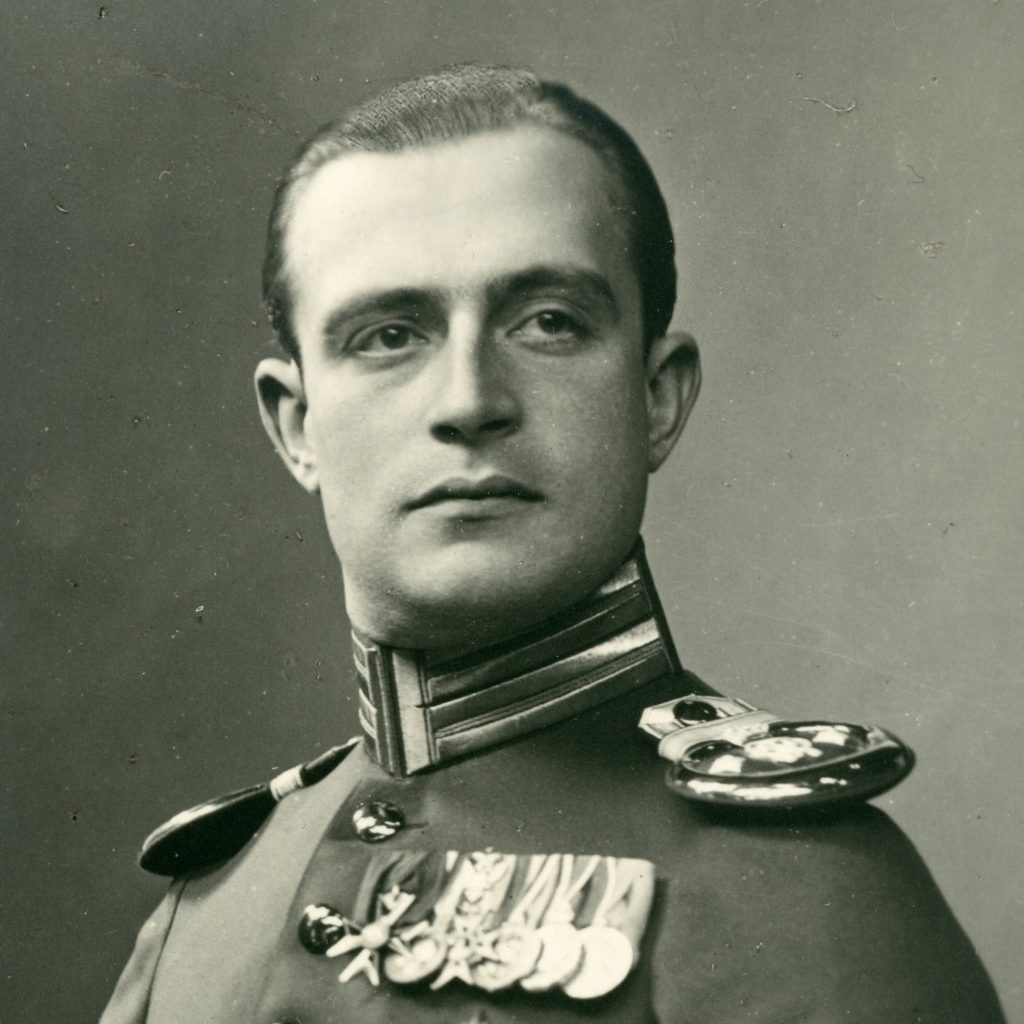
On the death of Grand Duke Adolf Friedrich VI on 23 February 1918 the male line of Grand Duke Friedrich Wilhelm expired meaning the heir to the throne Duke Carl Michael, from the Russian line of the family, was now ipso jure the Grand Duke of Mecklenburg-Strelitz. As Duke Carl Michael had previously indicated he would not reign as grand duke, the neighbouring Grand Duke Friedrich Franz IV of Mecklenburg-Schwerin (1882-1945) established a regency in Strelitz until the issue of the succession could be resolved. On account of the turmoil in Russia stemming from the overthrow of the monarchy in 1917 and the outbreak of civil war, Duke Carl Michael was unaware of his cousin’s death and he proved difficult to contact. Eventually a letter from Grand Duke Friedrich Franz IV asking if it was still his intention to renounce the throne was sent to Duke Carl Michael on 17 May 1918.
There was great anxiety in Mecklenburg-Strelitz at this time as should Duke Carl Michael renounce the throne then the union of Mecklenburg-Strelitz and Mecklenburg-Schwerin was the likely outcome due to the terms of the Treaty of Hamburg which established the two states in 1701. A union was something that the overwhelming majority of the citizens of Mecklenburg-Strelitz were opposed to on account of the superior financial position of their grand duchy derived largely on account of the wise stewardship of Grand Duke Friedrich Wilhelm. To try and prevent the union the citizens of Mecklenburg-Strelitz organised a petition which was sent to Duke Carl Michael calling on him to accept the throne. The petition never reached Duke Carl Michael but the letter Grand Duke Friedrich Franz IV sent dated 17 May 1918 reached him on 24 July 1918. He replied on 27 July 1918 renouncing his right to reign as either Grand Duke or regent in the whole of Mecklenburg but retaining all other rights as a member of the House of Mecklenburg-Strelitz.
However while the letter was still in transit the German revolution broke out and Grand Duke Friedrich Franz IV renounced the throne of Schwerin for himself and his House on 14 November 1918 with the regency in Strelitz ending at the same time. Both Mecklenburg-Schwerin and Mecklenburg-Strelitz then became individual Free States in the German republic.
Post monarchy
Duke Carl Michael, head of the House of Mecklenburg-Strelitz and ipso jure the last Grand Duke, left Russia in 1919 settling in Denmark. Duke Carl Michael’s letter renouncing the throne dated 27 July 1918 was finally received by Grand Duke Friedrich Franz IV in December 1918/January 1919 after the monarchy had already ended and he had himself signed his own renunciation on 14 November 1918, he therefore passed the letter onto State Ministry in Mecklenburg-Strelitz who immediately took the view the renunciation letter of Duke Carl Michael was meaningless. This was a view supported by the respected jurist Heinrich Triepel who the Free State hired to look into the issue of the validity of the renunciation in respect of the compensation negotiations that Duke Carl Michael had opened with the Free State as member of the former reigning house. Duke Carl Michael and his legal team also took the view the renunciation was not valid. Eventually an agreement on compensation was reached by the Free State and Mecklenburg-Strelitz’s ipso jure last Grand Duke, Duke Carl Michael. Separate compensation claims were pursued against the Free State by the mother of the late Grand Duke Adolf Friedrich VI, Grand Duchess Elisabeth, and her two daughters Princess Marie of Lippe and Princess Militza (Jutta) of Montenegro.
With Duke Carl Michael unmarried and childless the House of Mecklenburg-Strelitz was threatened with extinction after over 200 years of history. Apart from the elderly Duke Carl Michael marrying and fathering a son himself, the only prospect of securing the survival of the Strelitz line lay with his nephew Count Georg of Carlow (1899-1963), the son of Duke Carl Michael’s late brother Duke Georg Alexander.
When Count Georg’s parents were married in 1890 although Grand Duke Friedrich Wilhelm had agreed to the marriage, as his family was firmly established in Russia, Count Georg’s father serving in the Imperial Russian Army and his mother fiercely proud of her Russian identity, his father did not receive official dynastic recognition for his marriage and he thus renounced his right to succeed in Strelitz as grand duke. As Count Georg’s father was fourth in the line of succession at the time it seemed unlikely that his decision would have any major impact on the future survival of the House of Mecklenburg-Strelitz, especially as it was impossible to foresee that his two young cousins Duke Carl Borwin (1888-1908) and his brother the future Grand Duke Adolf Friedrich VI, who were both ahead of him in the line of succession, would meet early ends. The House laws of Mecklenburg-Strelitz themselves contain no description of morganatic marriages. After the marriage the title of Countess of Carlow was created by Grand Duke Friedrich Wilhelm for Duke Georg Alexander’s wife Natalia Feodorovna Vanljarskaya with provision for it to pass to her descendants in the male line.
Upon the death of his brother in 1909 Duke Carl Michael had been appointed the legal guardian of his nephew Count Georg and his three sisters by Grand Duke Adolf Friedrich V and Emperor Nikolai II of Russia. This already existing father-son like relationship was formalised on 11 September 1928 when Duke Carl Michael adopted his nephew Count Georg and his family as his heirs. The adoption was legally registered with a court in Malchin on 5 October 1928. With the adoption the survival of the House of Mecklenburg-Strelitz was secured and Count Georg and his family adopted the titles duke/duchess of Mecklenburg along with the coat of arms of Mecklenburg-Strelitz and the family motto ‘Avito viret honore’, meaning ‘He flourishes with hereditary honours’. The process of bringing non dynastic born males into princely houses to secure their survival was nothing new having been used successfully by Baden in 1817 and Schwarzburg in 1897.
Due to the close ties between the Russian branch of the House of Mecklenburg-Strelitz and the House of Romanov, the Russian Emperor-in-exile Grand Duke Kirill Vladimirovich was notified of the adoption contract and on 18 July 1929 bestowed the style of Serene Highness on his cousin Duke Georg and his family. The head of the senior branch of the House of Mecklenburg, Grand Duke Friedrich Franz IV of Mecklenburg-Schwerin, recognised the adoption contract on 23 December 1929 after having insisted Duke Georg renounce the throne and retain use of the Carlow title, the latter of which Georg had already thought to do in order to honour the memory of late his mother. The former Count Georg of Carlow was henceforth styled His Serene Highness Duke Georg of Mecklenburg, Count of Carlow.
Should Duke Georg not have complied with Grand Duke Friedrich Franz IV’s request to renounce his right to reign as a Grand Duke of Mecklenburg-Strelitz, there regardless would have a been a question mark over his ability to become Grand Duke on account of his conversion in 1920 from Lutheranism to Roman Catholicism. In Mecklenburg the Grand Duke served as Head of the Evangelical Lutheran Church of Mecklenburg and in the recent past the view taken by Mecklenburg-Schwerin was that it was not possible to have a Catholic Grand Duke, this view had not been without controversy however as the reigning Duke Christian Ludwig I of Mecklenburg-Schwerin (1623-1696) had become a Catholic and continued to reign. The prospect of a Catholic Grand Duke of Mecklenburg-Schwerin was addressed in 1884 when the Catholic line of the House of Mecklenburg-Schwerin descending from Duke Paul Friedrich (1852-1923) and his Catholic wife Princess Marie of Windisch-Graetz (1856-1929), who followed the reigning Grand Duke Friedrich Franz III and his son the future Grand Duke Friedrich Franz IV in the line of succession, were required to renounce their place in the succession to allow Duke Paul Friedrich’s younger brothers and their descendants take precedence. In the event the succession passed to the Catholic line they were also required to convert to Lutheranism to become Grand Duke.
Ultimately as was shown with the renunciation of Duke Carl Michael, any renunciations, or religious or constitutional questions would only have been able to be fully and legally settled and enacted in the event of the restoration of the monarchy in Mecklenburg. The adoption of Duke Georg took place at a time when Germany was under the presidency of the First World War hero Field Marshal Paul von Hindenburg. With President von Hindenburg known to have monarchist sympathies there was considered in some circles a prospect that the monarchy could return to Germany, however as events would turn out a restoration of the old German Empire (Second Reich) never materialised. Instead a new German State (Third Reich) was created under the leadership of Adolf Hitler who came to power in January 1933 as Chancellor and then Head of State as Führer upon the death of President von Hindenburg in August 1934. Under the Nazi regime a single unified Mecklenburg state, which was first seen as the most likely outcome of the Strelitz succession crisis in 1918 with Grand Duke Friedrich Franz IV at the head of a unified Grand Duchy of Mecklenburg, finally came into existence with Mecklenburg-Strelitz and Mecklenburg-Schwerin becoming a single unified Free State in December 1933
Duke Carl Michael left Denmark for his Remplin Palace estate in Mecklenburg in 1930, joining his nephew and heir Duke Georg who had been living there since 1922. On the death of Duke Carl Michael in 1934 his nephew Duke Georg duly succeeded as head of the House of Mecklenburg-Strelitz. On account of his Catholic faith and Russian origins Duke Georg faced persecution from the Nazi regime and in 1940 the Remplin Palace was largely destroyed in a fire instigated by the local Nazi Gauleiter and he was forced to relocate with his family to Berlin. This new home in Berlin was destroyed in an allied bombing raid in February 1944, forcing the family to relocate again to the Birstein Palace in Hesse, the home of Duke Georg’s stepdaughter Irina who was married to Prince Franz Ferdinand of Isenburg. In August 1944 Duke Georg was arrested by the Nazi secret police, the Gestapo, after having attempted to use his contacts with military officers to gain bail for two catholic priests. After a period incarcerated in the Gestapo headquarters in Prinz-Albrecht-Straße in Berlin, Duke Georg was sent to the Sachsenhausen concentration camp where he was held until February 1945, gaining his freedom only after the intervention of a Papal nuncio.
Following his release Duke Georg and his family moved to Sigmaringen in southern Germany at the invitation of Princess Margarete of Hohenzollern, where, on account of the partition of Germany at the end of the Second World War with Mecklenburg falling into communist East Germany, the family permanently settled. Ultimately the first half of the 20th century proved utterly devastating for the Russian line of the House of Mecklenburg-Strelitz. The First World War saw them driven out of Russia losing everything they owned there in the process, while the Nazi period and Second World War saw them persecuted and forced out of Mecklenburg again losing what little remained of their property there. In the early Post War period the elder line of the House of Mecklenburg-Strelitz, which descended from Grand Duke Friedrich Wilhelm and his son Grand Duke Adolf Friedrich V, expired on the death of its last female member Princess Marie of Lippe in 1948, her sister Princess Militza (Jutta) of Montenegro having died in 1946.
Although Duke Georg had succeeded his uncle Duke Carl Michael as head of the House of Mecklenburg-Strelitz back in 1934, due to a continued misunderstanding in some quarters regarding his status due to his non dynastic birth and the ambiguous recognition from Grand Duke Friedrich Franz IV in 1929 who had wanted him to renounce the throne and continue to use the Carlow title, the House of Mecklenburg-Schwerin issued a communiqué on 18 December 1950 clarifying the situation. The communiqué affirming Duke Georg’s position as head of the House of Mecklenburg-Strelitz and recognising his and his family’s right to the style Highness as dynastic dukes/duchesses of Mecklenburg was issued by the head of the Schwerin line Hereditary Grand Duke Friedrich Franz (1910-2001), who had succeeded his father Grand Duke Friedrich Franz IV in 1945 and who had himself been married since 1941 to a noble lady of equivalent rank to Duke Georg’s mother and wife, and Duke Adolf Friedrich (1873-1969). The only other Schwerin male alive at this time was the Hereditary Grand Duke’s younger brother Duke Christian Ludwig (1912-1996) who was imprisoned in the Soviet Union, only gaining his freedom in 1953. With this communiqué the previously retained Carlow title was also abolished.
Duke Georg died at his home in Sigmaringen in 1963, being succeeded as head of the House of Mecklenburg-Strelitz by his elder son Duke Georg Alexander (1921-1996). After German reunification Duke Georg Alexander returned to Mecklenburg in 1991 becoming the first Mecklenburg duke to reside in the state since 1945 and took up residence on the Mirow Palace Island. Upon his death he was interred alongside his ancestors in the family crypt in the Church of St John in Mirow, the first such burial for a family member there since Grand Duchess Elisabeth in 1933. His only son Duke Borwin (born 1956) succeeded him as head of the House of Mecklenburg-Strelitz.
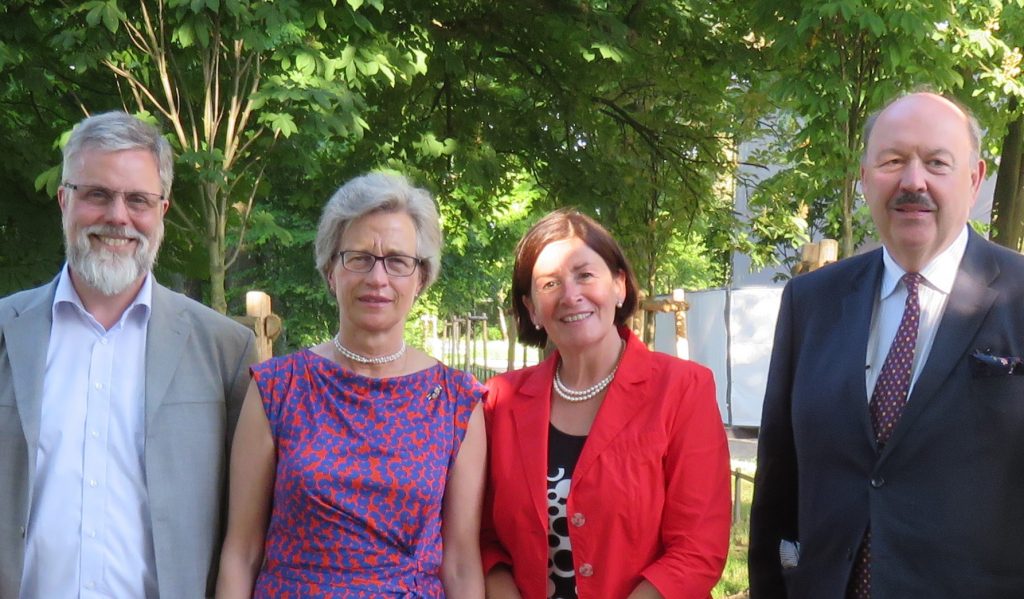
In the post monarchy period traditions between the Strelitz and Schwerin lines dating back to the time of the monarchy have been retained with members of the House of Mecklenburg-Schwerin continuing to be godparents to members of the House of Mecklenburg-Strelitz. Duke Carl Gregor (1933-2018) counted Grand Duke Friedrich Franz IV, Duke Heinrich (1876-1934), the consort of Queen Wilhelmina of the Netherlands, and Duchess Marie Antoinette (1884-1944) among his godparents, the Hereditary Grand Duke Friedrich Franz was a godfather of Duke Borwin (born 1956) while Duchess Donata (born 1956) is a godmother of Duke Michael (born 1994). Other occasions such as birthdays, weddings and funerals also see the two lines of the House of Mecklenburg come together.
The death on 31 July 2001 of Hereditary Grand Duke Friedrich Franz of Mecklenburg-Schwerin has left the House of Mecklenburg-Strelitz as the only remaining line of the House of Mecklenburg extant in the male line, two members of the House of Mecklenburg-Schwerin remain in the form of Duchess Donata and her sister Duchess Edwina (born 1960), the two daughters of Duke Christian Ludwig.
Although the current head of the house Duke Borwin is not resident in the former Mecklenburg-Strelitz he maintains a close link to the region and attends various functions there throughout the year. Today the former Grand Duchy of Mecklenburg-Strelitz is mainly located in the State of Mecklenburg-Vorpommern, with its former Principality of Ratzeburg exclave located in the State of Schleswig-Holstein.
